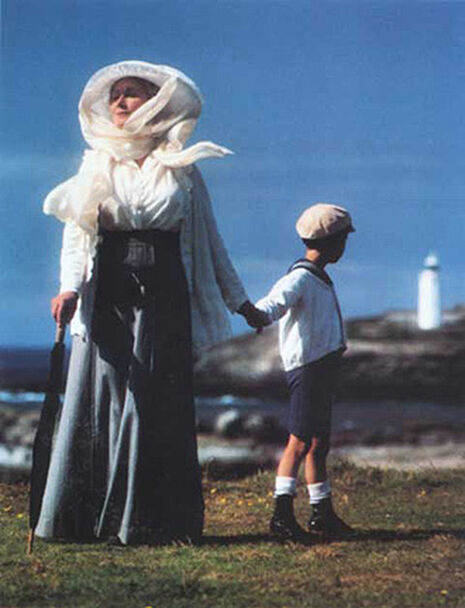Film: To the Lighthouse
As part of the ‘To the Lighthouse Festival’, India Ross gives her opinion on the 1983 TV-adaption and talk at the Cambridge Arts Picturehouse

‘Cinema subsists on the bodies of its victims’.
Despite the hewing of the film industry with this blunt axe of a contention, in the case of her modernist masterpiece, To the Lighthouse, and its lame 1983 made-for-TV adaptation, Virginia Woolf was right on the money. Showcased this week at the Arts Picturehouse to a full house of die-hard Woolf disciples, Hugh Stoddart’s production marked a giant leap for the Cambridge cultural scene, if only a rather smaller step towards cinematic excellence.
Woolf’s stream-of-consciousness narrative, in which a wealthy family holidaying in 1920s Cornwall indulge in some lengthy periods of contemplation to rival the angst marathons of Sartre, exploring subjectivity and the nature of reality against a backdrop of coastal splendour, is translated for the screen with almost obseqious fidelity. A young Kenneth Branagh is excellent as a petulent idealist, alongside the horror specialist Michael Gough as his miserly professor. Had the avant-gardism of Virginia Woolf provoked similar daring in Stoddart’s interpretation, this film could have side-stepped the tedium into which it has slumped, but in the wake of Apocalypse Now four years previously, the majestic reworking of Conrad’s Heart of Darkness, To the Lighthouse is dwarfed.
In light of the recent trend for novel adaptations jumping on the bestseller bandwagon, this film raises a wider debate of whether greatness on the page engenders greatness on the screen. Stephen King described his work as "a literary Big Mac and fries", and yet it was far-surpassed by a multitude of remarkable adaptations. A post-screening discussion between Stoddart, the screenwriter, and Goldsmith’s Professor of English Literature, Laura Marcus, provided a multifaceted approach to the film’s appraisal, and an unusually interactive cinema experience. Although undermined by the questionable quality of the picture itself, the Arts Picturehouse is to be applauded for its efforts.
 Comment / College rivalry should not become college snobbery30 January 2026
Comment / College rivalry should not become college snobbery30 January 2026 Features / Are you more yourself at Cambridge or away from it? 27 January 2026
Features / Are you more yourself at Cambridge or away from it? 27 January 2026 Science / Meet the Cambridge physicist who advocates for the humanities30 January 2026
Science / Meet the Cambridge physicist who advocates for the humanities30 January 2026 News / Cambridge study to identify premature babies needing extra educational support before school29 January 2026
News / Cambridge study to identify premature babies needing extra educational support before school29 January 2026 News / Vigil held for tenth anniversary of PhD student’s death28 January 2026
News / Vigil held for tenth anniversary of PhD student’s death28 January 2026









